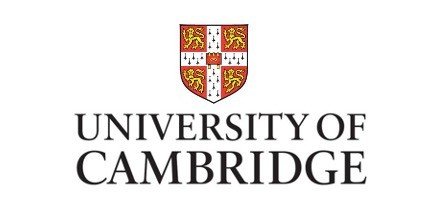Applications are invited for an Ernest Oppenheimer Early Career Research Fellowship to be held at Cambridge University in Colloid Science, as broadly interpreted within the fields of biology, chemistry, physics, materials science and engineering. These Fellowships are intended to provide an opportunity for independent research, though the holders usually work in collaboration with an established research group. Applications are encouraged from researchers who will have completed a PhD by 1 October 2025 and have normally spent not more than three years after a PhD viva or defense in post-doctoral research by 1 October 2025.
The post will be based in Cambridge in an appropriate department.
Tenure is for three years commencing from 1 October 2025. The stipend range is £36,924 – £45,163 p.a. Automatic annual increments will go up to Single Salary Spine point 48 only. A contribution may be made towards relocation expenses, and up to £20k p.a. will be made available for research expenses.
The Oppenheimer Fellowship cannot be held concurrently with any other paid position, or position which would normally attract a stipend.
You will need to upload:
(a) Curriculum Vitae (2 pages maximum) including academic career, qualifications (with class of degree and position in course as x/y), any relevant teaching experience, list of papers published (only papers with a DOI may be quoted). The list of papers should give the titles of the papers, the complete author list and the name of the journal, and should be numbered, not bulleted.
(b) Two statements, describing respectively your previous and current research (1 page maximum), and the proposed research programme, including its relevance to broad colloid science (3 pages maximum).
(c) A completed Head of Department Written Approval form (completed by the Head of the Department in Cambridge in which you hope to work).
Please ensure that uploaded documents are submitted in a font no smaller than 11 pt. Applications exceeding the specified length (CV, including the list of publications, 2 pages; previous and current research, 1 page; proposed research, 3 pages) or in a font size smaller than 11 point will not be accepted. If you upload any additional documents which have not been requested, they will not be considered as part of the application.
Please ensure that you clearly explain in your application how your research proposal relates to colloid science.
Please note that incomplete applications will not be considered.
Please include, in the online application form, the names, addresses and e-mail addresses of two persons (only) who are willing to give a confidential assessment of your research to the Committee of Management; at least one of these should be an external referee. Please ask these two referees to write direct to the Acting Secretary, Georgina Fuller, at PhysicalSciences@admin.cam.ac.uk by the closing date of 7 January 2025.
The References section of the online application form gives an option regarding the stage at which referees are contacted. Please note that, as outlined above, both references need to be sent to PhysicalSciences@admin.cam.ac.uk by the closing date of 7 January 2025.
Please note that a security check may be required, depending on your research area.
The Committee of Management hopes to make a decision by the middle of February 2025.
The decision of the Committee of Management will be final. It is not possible, given the number of applications received, to provide unsuccessful candidates with feedback.
A list of projects recently funded is available. To request this list, please write to Georgina Fuller at PhysicalSciences@admin.cam.ac.uk.
Informal enquiries may be directed to Georgina Fuller at PhysicalSciences@admin.cam.ac.uk or to the Departmental Administrator at the Department in which you hope to work.
Click the ‘Apply’ button below to register an account with our recruitment system (if you have not already) and apply online.
Please quote reference LA43859 on your application and in any correspondence about this vacancy.
The University actively supports equality, diversity and inclusion and encourages applications from all sections of society.
The University has a responsibility to ensure that all employees are eligible to live and work in the UK.





